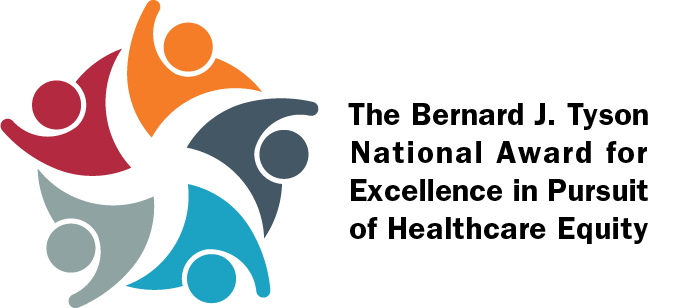By Jonathan Jiménez, MD, MPH, Executive Director of NYC Care, NYC Health + Hospitals
This fall, the NYC Care team was honored to be named as a co-recipient of the 2022 Bernard J. Tyson National Award for Excellence in Pursuit of Healthcare Equity. Since NYC Care launched in 2019, the team – made up of NYC Health + Hospitals staff members, New York City agency partners, and our network of community-based organizations – has worked tirelessly to close the access gap between documented and undocumented New Yorkers. Critical to our success has been understanding the nature of the challenge ahead and forging the right partnerships to build trust in the communities we serve.
The Access Gap
One of the most potent determinants of access to healthcare in the United States is immigration status. Undocumented Americans are legally excluded from access to health insurance by federal and most state laws. The Department of Homeland Security’s (DHS) 'Public Charge' rule, and heightened immigration enforcement in recent years, among other factors, also led to a ‘chilling effect’ where undocumented New Yorkers avoided seeking services from the government for fear of deportation. The result is that half of undocumented Americans in New York City are uninsured.
This widening gap in access is particularly damaging for patient populations most prone to chronic conditions. Black/African American and Latinx New Yorkers are more likely to be undocumented and have a higher prevalence of chronic conditions such as diabetes and hypertension. In turn, these chronic conditions, especially if uncontrolled, lead to shorter, sicker lives. Whether an undocumented New Yorker has been in the United States for three days or three decades, the need for primary care is urgent.
From Many Doors to One
Many providers across the city provide healthcare services at discounted rates for the uninsured. However, each provider employs its own application process for these discounted services, and few provide comprehensive healthcare (e.g., primary care, preventive screenings, specialty care). Moreover, the affordable services are not widely known, so many excluded from health insurance forego healthcare altogether.
NYC Care created a single healthcare access program to access all services available at NYC Health + Hospitals, the largest public healthcare system in the nation with 11 hospitals and 56 clinics. NYC Care members benefit from a membership card with their name, the name of their primary care provider, and the fees they can expect to pay on the back. A 24-hour call center helps prospective members enroll in the program, connects them to primary care, and facilitates prescription refills, appointments, and messages to the primary care team. Members new to NYC Health + Hospitals are offered an appointment within two weeks.
The Importance of Community Engagement
NYC Care was citywide in 2020, and this year, we enrolled our 100,000th member. Additionally, with the support of the Adams administration, we were proud to announce the elimination of the six-month residency eligibility requirement. As the program has expanded and removed barriers in access to care, we have forged partnerships that build trust in the community, supplementing our multi-pronged communications strategy.
Across the five boroughs, NYC Care works with 22 community-based organizations to conduct culturally-sensitive outreach to prospective members. Their staff are trusted in the communities they serve and speak over 30 languages collectively. These organizations, including Korean Community Services (KCS), Make the Road NY, and Arab-American Family Support Center (AAFSC), host events, distribute materials to community members, and in some cases, facilitate direct enrollments into NYC Care.
Supplementing outreach at the grassroots level has been the program’s multifaceted public awareness strategy to maximize the number of touch points reaching prospective members. The program has continuously launched citywide advertising campaigns in mainstream as well as community and ethnic media, which includes out-of-home, digital, and print placements. Additionally, through partnerships with city agencies and nonprofit organizations, NYC Care has held media roundtables, health fairs, and days of action. Finally, as NYC Care is integrated into all levels of our health system, our 11 hospitals and 56 clinics serve as additional resource centers. From our President and CEO Dr. Mitchell Katz to our doctors and nurses on the ground, all are encouraged to share about the program.
Scaling Up
With NYC Care, we are proud to promote a culture of flourishing and to share with New Yorkers that here, healthcare is a human right. Understanding the healthcare inequities faced by those who are uninsured has been fundamental to orchestrating the communications and marketing strategy that meets the challenge head on. Since February 2022, NYC Care members have made 264,976 primary care visits and 227,481 specialty visits. After six months of enrollment, 53% of enrollees with diabetes had improved hemoglobin A1C, and 40% of enrollees with hypertension had improved blood pressure. It is also enlightening to see that over 70% of members have had at least one visit within the year with their primary care doctor.
As a family physician who serves NYC Care members, every one of my patients is a reminder of the transformative impact of the program. It is my hope that our success inspires other health systems to develop the supports needed to serve those excluded from health insurance due to immigration status or ability to pay.
Jonathan Jiménez, MD, MPH, is the Executive Director of NYC Care, a healthcare access program ensuring every New Yorker has access to healthcare regardless of immigration status or ability to pay. NYC Care is housed within NYC Health + Hospitals, the largest public healthcare system in the nation, and has over 110,000 members. The program works with 22 CBOs across the city and runs a citywide awareness campaign to ensure all New Yorkers know they have a right to healthcare. Dr. Jiménez trained in family medicine at Duke and holds an MPH from Columbia.



